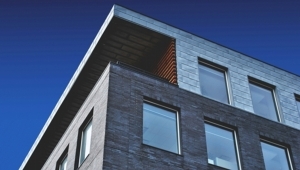Which is better to help with your retirement, property or pension?
Listed Under: News

When approaching retirement, where you invest to deliver an income is a tough aspect to comprehend. One of the most common questions is whether to invest in a rental property or into your pension? Both options can deliver growth and can provide an income, however the route that is right for you will depend on a wide range of factors.
Buying a property to rent out can look like an attractive investment if you have got the means to do so and receiving a rental income can boost both your regular income and savings. Then there are the proceeds you would hope to receive when it comes to selling the property.
Compared with solely paying into a pension, it can seem like property could be more of a lucrative investment (especially if you have not paid into your pension for very long). However, there are additional things to consider about property as an investment.
What to know when you buy to let
- When buying a property to rent out, you will pay a higher rate of stamp duty than buying a property to live in yourself.
- When you become a landlord, you will have expenses such as service charges (if this is a flat), letting agent fees, landlord and building insurance, as well as additional costs for maintenance and refurbishments.
- Should the property be empty, you will not be receiving rental income.
- As a landlord, there are increasing obligations, such as safety certificates for gas and electrical.
- Although still in draft form, the Renters Reform Bill will improve the rights for tenants, making it more difficult for landlords to get possession of their property.
- Since 6th April 2020, income tax relief on all residential property is restricted to the basic rate of Income Tax for individuals. Landlords who are higher rate taxpayers are likely to have a higher income tax bill if they pay mortgage interest on the property.
- If you were to take a mortgage out on a rental property, you will be subject to changes in interest rate, whether you are on a variable rate or when the fixed term on your mortgage ends. From there, if the price of your property was to fall or your after-tax rent is less than your mortgage and other costs, you could make a loss.
- Following the sale of the property you will be subject to a higher level of capital gains tax. When selling a secondary property there is a surcharge of 8% on capital gains, meaning if you are a basic rate taxpayer you will have to pay 18% on gains rather than 10% or, if you are a higher/ additional rate taxpayer you will pay 28% instead of 20%. You will need to declare the capital gains within 30 days of making the sale.
- If you don’t sell your rental property 7 years before you die, it could be subject to inheritance tax.
- In comparison to paying into a pension, an investment property takes much more time and commitment.
How a pension compares
Whether through your employer’s workplace scheme or paying into a personal pension, you will see your money working harder for you. When contributing into a pension, the government will provide income tax relief on contributions at the highest rate of income tax you pay. Any investment growth and income within the pension wrapper is free of income tax and capital gains tax.
When it comes to withdrawing money from your pension, you can choose to take 25% of the value of your pot tax-free (this is up to the amount of £268,275, which is 25% of the Lifetime Allowance of £1,073,100) from age 55 (from 2028 this will increase to age 57). Further pension benefits include:
- Your pension pot falls outside of your estate for Inheritance Tax (unlike property)
- You can have more control over where your money is invested
- In comparison to property, there will be lower management costs
- Investment growth will compound over the years, which can make a large difference to the value of your pension provision
- Since, 2015 when the Pension Freedom Legislation was put in place, there is now a greater choice over how you access your pension and when.
When it comes to disadvantages, the main one is that you are unable to access your pension until you are 55 years old (at the earliest). However, now that people continue to work past retirement age or do not feel ready to start drawing money from their pension, this is becoming less of an issue.
Which is better for your money, Property or Pension?
On the whole, diversification is key. You should not neglect paying into your pension because you have put money into property, but on the flip side, if you have the means to invest both capital and time into property, this should not be discounted if you feel it could be a good investment.
When it comes to delivering an income for your retirement years, paying into your pension from an early age is vital. Similar with property, the longer it is held the better the returns. However, with property, when selling during a volatile property market, you may experience a downward trend, receiving less than you invested as well as maybe needing to pay an early repayment charge.
Whether you feel that investing a property or a pension is more suitable for your financial future, it is wise to receive advice. Feel free to contact us to discuss your options.

 loading...
loading...